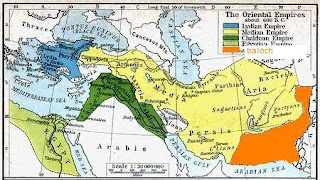Baluchistan is the homeland of Baluch people. Baluchistan is now occupied and is located between Persia, Khorasan, Pashtunestan, Punjab and Sind. From the south, the country is limited Baluchistan Sea and the Indian Ocean.Baluchistan was occupied by the British colonial forces in 1839 after they defeated Baluchistan's army, when existed neither Iran in the present form nor Pakistan. The British colonial forces divided Baluchistan in eastern and western Baluchistan in 1871 (Goldsmith line). So was the Northern part incorporated with Afghanistan in 1893 (Durnad line). The Eastern part of Baluchistan was declared as a free and independent country after the Second World War, 11 August 1947.
Area:The Occupied Baluchistan in Iran include the current "Sistan and Baluchistan" province, southern Kerman province, 2 / 3 part of Saheli province and large parts of southern Khorasan. Baluchistan in Iran has an area of 247,700 square kilometers. This part of Baluchistan was occupied by the Persian army in 1928 in collaboration with the British colonial forces.
The Occupied Baluchistan in Pakistan includes current Baluchistan province, parts of Punjab and Sind province.
Area: 437190 square kilometers. This part of Baluchistan was occupied by the Pakistani Army on March 1948.
The Northern part of Baluchistan is in Afghanistan. Nimroz province, parts of Hilmand Province and the southern Farah province belong to Baluchistan. The area of this part is well over 80,000 square kilometers. This part became incorporated with Afghanistan in 1893 as a result of dividing Baluchistan (Durnad line) by British colonial forces.
Baluchistan also has approx. 1600 km long coastline, from Gombodan (Bandar e Abbas) to Karachi. According to the international law of the sea from 1982, the sea of Baluchistan has an area of (1600 km x 22km), also 34,200 square kilometers.The total area of Baluchistan: ((247700 + 437190 + 80000 + 34400) = 799290 square kilometers.
Population:Baluch people in Baluchistan are about. 20,000,000. Baluchs that are living in Persia, Punjab, Turkemanestan, India, Kenya, Tanzania, Arabian and Western countries are approximately 700,000 individuals.
The political situation:The Punjabi army with intelligence services in Pakistan, fanatical Persians in Iran (Sepah Pasdaran E, Iranian intelligence services with local gangs) and Afghans are occupying forces in Baluchistan today. All those in power have a common goal namely the extraction of natural resources and minerals in Baluchistan. In order to reach this goal, they use brutal methods and policies against baluch people.The central governments in Tehran, Islam Abad and Kabul have suppressed, ignored baluch people for decades. They have deprived Baluch people of legitimate rights as a nation. Baluch people are discriminated through employment, education, and public institutions in Iran, Afghanistan and Pakistan.Unemployment in Baluchistan is over 60%.Several thousands of individuals work in Sind, India, Arabian and European countries to support their families.A long resistance and battle for independent and democracy is underway throughout Baluchistan.
Religion:99 percent of baluchs are Sunni Muslims. Since 1980 has been a systematic attempt by the Iranian religious government to push and force the Baluch to convert to Shia (Khomeini's Shi'ite sect).
Large cities:Dozzap ( Zahidan ), Shala ( Quetta ), Keich, Khozdar, Pahra ( Iranshahr )
Shastoon ( Sarawan ), Wash ( Khash ) and Zabol.
Ports:Gombodan ( Bandar e Abbas ), Minab, Jashk, pozm, , konarak, Chahbar, Passeni, Jewani, Gwadar, Ganz, Urmarha and Gadani.
Historic cities:Bonpour, Espeidezh, Dezzak, Tump, Kalat, Shal, Sebbi, Gandawa, Waddh, Sarbaz, Kant, Gwadar, Minab, Mastung, Champ, Teis, Panjgoor, Magas, Bent, Geh, Gombodan, Chakansour, Eirendegan, Dhammen , Eirokshan, Jalk, Lasbiela and Noushki.
Minerals:Gold, silver, copper, uranium, iron, zinc, marble, dolomite, gypsum, manganese, aluminum, granite, magnesite, lead, barite, blourite, building blocks, chromite, iron ore, limestone, multi onyx, red onyx, pumice stone, glass sand (silica sand), sulfur, goaasn green jaberjet, brown garnet, aragonite, agate, amethyst, auriferous quartz, sitrin, green quartz, smoky quartz, green vesuvianite, serpentine, idocrase, varicolored agate, chrysoprase, chalcedony, decorative stones, white marble, green marble, "Chocolate" marble, limestone verona, botesina, trotters, China verona, Burma teak, plane verona, titanite, rutile, amethyst, epidote and anatase.
Energy sources:Solar Energy, wind energy, wave energy, water force, tidal energy, natural gas, oil and coal.
Agriculture products:Corn, wheat, oats, rice, beans, potatoes, vegetables (squash, melon, cucumber, tomatoes, cauliflower, cabbage, lettuce, mint, turnips,Sugar cane, onions and garlic,)
Fruit:70 types of dates, mangoes, bananas, apples, grapes, oranges, plums, apricots, konar, melons, pomegranates and figs.
Oilseeds:Sunflowers, sesame seeds, rapes, hechk, corn and soya beans.
Several kinds of herbs and natural medicines.
Meat:Meat of lamb, goat, beef, veal and chickens.
Milk and milk products.
Ocean Seafood:Fish, shrimp, lobster, crayfish, whales, oysters, mussels and crabs.Different type of aquarium fish.
Industry:Carpet weaving, weaving fishing nets, production of bricks and cement, embroidery, needlework. Cannery, date products, construction and building of boats.
Research Team for the mapping of Baluchistan's natural resources and mines
June 2011



No comments:
Post a Comment